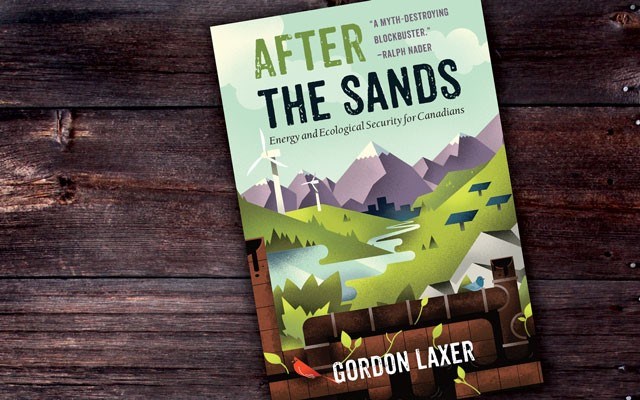With the UN climate conference in Paris ongoing, there has been a lot of talk about Canada's return to the table in terms of addressing climate change and its environmental impact.
The new Trudeau government made some positive, quick reversals to the policies of its Conservative predecessors: placing a moratorium on oil tankers in Northern B.C. waters, coming out against the Northern Gateway oil pipeline, allowing scientists to talk about their work to the media, and asking Finance Minister Bill Morneau to phase out the $2.74 billion in fossil fuel subsidies enjoyed by big gas and oil corporations.
But how can Canada truly move forward from its carbon energy-based system to something else? The Harper government earlier this year signed on to a convention that said it would take until 2100 to phase out oil, gas and coal — thereby removing the need to address the problem immediately.
Trudeau is quiet so far on his timeline. Many think changes need to come far sooner.
Professor Gordon Laxer believes he has a solution, which he spells out in his new book, After the Sands: Energy and Ecological Security for Canadians.
Laxer, a retired professor of political economy from the University of Alberta and founder of the Parkland Institute, gives a detailed account of the history of Canada's oil and gas industry, its connections to international trade agreements, and describes how the political decisions made regarding oil production has benefitted foreign companies far more than the Canadian economy.
Full disclosure at this point: I was brought in 18 months ago as an early editor of After the Sands. I worked with him on it for four months until he was ready to pass it on to eventual publisher Douglas & McIntyre.
After the Sands won't please everyone; least of all those with a conservative business bent. Some environmentalists may also be unhappy with the 30-year timeframe for change. The book states that the shift beyond fossil fuel will take leadership and drive, and probably require some sacrifices. The alternative, doing little and hoping the market will drive the change, is far more haphazard.
Some of Laxer's suggestions are radical and provocative. Laxer would like to nationalize the energy industry in order for us to use our own oil and gas, along with built infrastructure, as we transition to renewables. It would mean breaking from the North American Free Trade Agreement, for example, something he argues has already been done by the U.S. But exporting the majority of our oil and gas and importing what we use makes no sense, he argues. Most reserves would stay in the ground, he says.
Laxer also says we need to build up strategic reserves of oil, which have been allowed to dwindle to catastrophic levels.
After the Sands might just be the guide to start curing our fossil fuel addiction. WIth its accessible style and copious footnotes, it's worth adding to the bookshelf of anyone seeking answers to climate change and what comes next.




